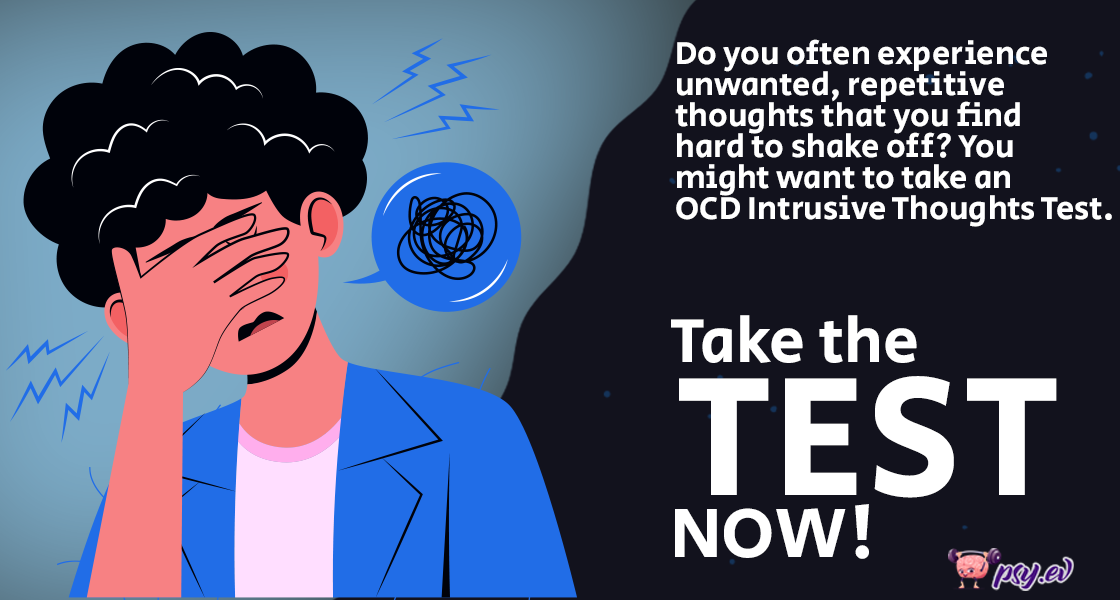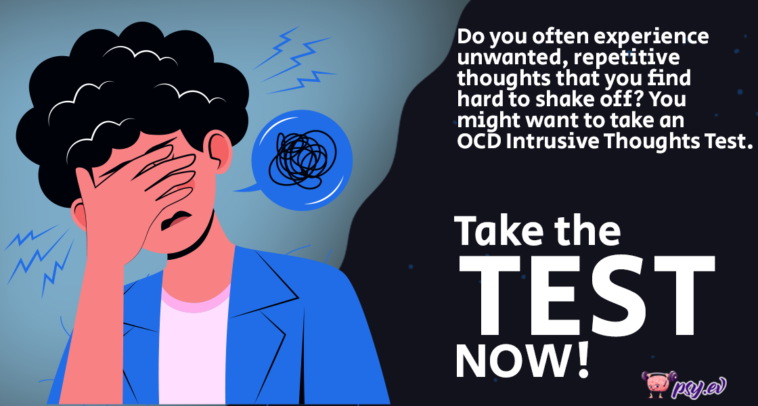OCD is a mental condition marked by often uncontrollable thoughts (obsessions) and behaviors (compulsions). While most people don’t act on intrusive thoughts, people with OCD may find it incredibly difficult to control their thoughts and actions. There are several types of OCD, and intrusive thoughts are a common symptom.
What Are Intrusive Thoughts?
Intrusive thoughts are random, often unpleasant or nonsensical, that manifest in one’s head suddenly and last shortly. For example, an intrusive thought could be about doing something embarrassing in public. Intrusive thoughts can also be dangerous, such as harming others or yourself.
While you may think that intrusive thoughts are a sign of a mental issue, it’s common for people to experience such thoughts. A global research survey found that 94 percent of people reported having intrusive thoughts. However, if such thoughts occur consistently and you feel the urge to act on them, there can be a deeper issue, such as OCD.
Intrusive thoughts are often unwanted and negative. They can be caused by stress, anxiety, or an underlying mental health issue. In OCD, intrusive thoughts can be a common occurrence. Because OCD involves obsessions, which are recurring, uncontrollable thoughts, it’s not uncommon for people to have intrusive thoughts. Unlike neurotypical individuals, people with OCD may get overwhelmed with such thoughts as they are frequently repeated and find it difficult to suppress them.
Intrusive thoughts can have sexual, violent, or blasphemous themes. But they are not limited to these, as such thoughts can be quite random.
Individuals who frequently experience intrusive thoughts may begin to obsess over why they occur. While such thoughts can indicate a mental health issue, that’s not always true. If you know these thoughts are just thoughts and don’t feel the urge to act on them, you don’t need a doctor or therapist. However, if you suffer from OCD and find it difficult not to act on them, you should see a psychologist.
What to Do About OCD Intrusive Thoughts?
Whether or not you’ve already been diagnosed with OCD, you should discuss your relentless intrusive thoughts with a mental health professional. Similarly, if you’re a parent of a child with OCD who has trouble with intrusive thoughts, it’s imperative to seek appropriate medical advice and begin therapy.
For most individuals, intrusive thoughts are just thoughts that don’t interfere with their daily lives. However, for people with OCD, intrusive thoughts are obsessions that can turn into behavior harmful to themselves and others around them.
Speaking to a psychologist, psychiatrist, or counselor is highly recommended. They can discuss your thoughts with confidentiality and help diagnose OCD or another mental health issue causing intrusive thoughts. It’s also possible that you don’t have a chronic mental illness and are experiencing intrusive thoughts due to stress or anxiety.
This OCD intrusive thoughts test is not a diagnostic tool. It’s a step in identifying the underlying issue. Only a licensed medical professional can provide a definitive diagnosis and draw a path for taking control of intrusive thoughts that are making your life miserable.


